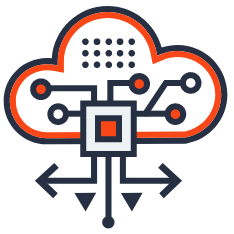Unleash the transformative power of AI in your business, revolutionising operations, driving efficiency, and propelling growth to unprecedented heights.
In today’s rapidly evolving digital landscape, harnessing the potential of artificial intelligence (AI) has become crucial for businesses striving to stay ahead of the curve, or just staying alive. From personalised customer experiences to streamlining operations and optimising decision-making, AI offers a multitude of benefits.
However, for many business professionals, the world of AI can seem complex and intimidating. In this article, we will demystify the realm of AI, unravelling its simple concepts and shedding light on how it can be effectively used to drive meaningful results in business.
Whether you’re a seasoned executive or an aspiring entrepreneur, join us on this journey as we explore the fundamental principles of AI, and delve into its practical applications within diverse industries.
What is AI?
Artificial Intelligence (AI) refers to the branch of computer science that enables machines to simulate human intelligence and perform tasks that typically require human cognitive abilities. It encompasses a wide range of technologies and techniques that enable machines to perceive, reason, learn, and make decisions in a manner akin to human intelligence.
AI systems are designed to analyse vast amounts of data, recognise patterns, and extract valuable insights to make informed predictions or take appropriate actions. Through machine learning algorithms, AI systems can continuously refine their performance and improve their accuracy over time, without explicit programming.
AI is not limited to a single approach or methodology but encompasses various subfields such as machine learning, natural language processing, computer vision, and robotics. These different facets of AI work in harmony, enabling machines to perform tasks like image recognition, language translation, speech synthesis, and even autonomous decision-making.
Importance of AI in business
The importance of AI in business cannot be overstated, as it has the potential to revolutionise how organisations operate, compete, and innovate. Here are key points elaborating on the significance of AI in the business landscape.
In today’s data-rich environment, businesses are inundated with vast amounts of data. AI enables organisations to extract valuable insights from this data, identify patterns, and make data-driven decisions. By deploying AI-powered analytics and predictive modelling, businesses can optimise strategies, identify opportunities, and mitigate risks with greater accuracy and speed.
AI technologies automate routine and repetitive tasks, enabling businesses to achieve higher levels of efficiency and productivity. Tasks such as data entry, document processing, customer support, and inventory management can be streamlined through AI-powered systems, freeing up human resources to focus on more strategic and complex activities. Automation also helps reduce errors, minimise costs, and improve overall operational efficiency.
AI enables businesses to deliver personalised and tailored experiences to their customers. Through techniques like natural language processing and machine learning, AI systems can analyse customer data, understand preferences, and provide personalised recommendations or assistance. This level of customisation enhances customer satisfaction, fosters loyalty, and drives higher engagement and sales.
AI can optimise various aspects of operational processes. For example, AI algorithms can forecast demand, optimise supply chain logistics, automate quality control, and enable predictive maintenance. By leveraging AI in these areas, businesses can improve efficiency, reduce costs, minimise waste, and ensure smoother operations.
AI unlocks new possibilities for innovation and disruptive business models. It enables organisations to develop AI-powered products, services, and solutions that create new markets or redefine existing ones. Businesses that embrace AI technologies gain a competitive advantage by delivering unique offerings, improving customer experiences, and staying ahead of industry trends.
AI can play a significant role in identifying and mitigating risks. Machine learning algorithms can analyse vast amounts of data to detect anomalies, patterns, and potential fraud. This is especially crucial in sectors like finance, insurance, and cybersecurity, where timely identification and mitigation of risks are paramount.
AI systems can scale effortlessly to handle large volumes of data and complex tasks, allowing businesses to grow and adapt to changing needs. Whether it’s processing massive datasets, automating customer interactions, or analysing market trends, AI technologies provide scalability and flexibility to support business growth and evolution.
Basic Concepts of AI
Machine Learning is a subset of artificial intelligence that focuses on enabling systems to automatically learn and improve from experience without explicit programming. It involves the development of algorithms and models that allow machines to analyse data, identify patterns, and make predictions or decisions.
Supervised learning is a machine learning technique where the algorithm learns from labelled training data. In this approach, the algorithm is provided with input data along with the corresponding correct output. The goal is to learn a mapping function that can accurately predict the output for new, unseen inputs. Supervised learning algorithms include decision trees, random forests, support vector machines (SVM), and neural networks. It finds applications in various business domains, such as sentiment analysis, customer churn prediction, and credit risk assessment.
Unsupervised learning involves training algorithms on unlabelled data to uncover hidden patterns or structures within the data. Unlike supervised learning, there is no predetermined correct output to guide the learning process. Instead, the algorithm discovers inherent patterns or relationships based on the data’s intrinsic structure. Common unsupervised learning algorithms include clustering and dimensionality reduction techniques like Principal Component Analysis (PCA) and t-SNE. Unsupervised learning finds applications in customer segmentation, anomaly detection, and market basket analysis.
Reinforcement learning is a learning paradigm where an agent learns to interact with an environment and make sequential decisions to maximise cumulative rewards. The agent receives feedback in the form of rewards or penalties based on its actions, guiding it towards learning optimal behaviour. Reinforcement learning algorithms use techniques such as Q-learning and Deep Q-Networks (DQN). Reinforcement learning has diverse applications, including autonomous robotics, game playing, recommendation systems, and dynamic pricing.
Regression is a fundamental statistical technique used in machine learning to model and analyse the relationship between a dependent variable and one or more independent variables. It aims to predict continuous numeric values based on input features.
Regression models establish a functional relationship between the independent variables (features) and the dependent variable (target). The models estimate the parameters that best fit the data and use them to make predictions. Linear regression is a widely used regression technique, assuming a linear relationship between variables. Other regression models, such as polynomial regression, logistic regression, and ridge regression, cater to different scenarios and complexities.
Regression analysis finds extensive applications in business. It can be utilised for sales forecasting, demand prediction, pricing optimisation, and financial analysis. For example, businesses can employ regression to estimate the impact of advertising expenditure on sales, identify key factors influencing customer satisfaction, or forecast future market trends based on historical data.
Clustering is an unsupervised learning technique that groups similar data points together based on their inherent characteristics or similarities. It aims to discover natural groupings or clusters within the data, enabling businesses to gain insights into data structure and patterns.
Clustering algorithms partition data into groups, ensuring data points within the same group are more similar to each other compared to those in different groups. The algorithms evaluate the distance or similarity between data points based on features and assign them to appropriate clusters. Popular clustering algorithms include K-means, hierarchical clustering, and DBSCAN.
Clustering has various practical applications in business. It can assist in customer segmentation for targeted marketing strategies, identifying fraud patterns in financial transactions, grouping similar products for inventory management, and organising documents or articles for content recommendation. By utilising clustering techniques, businesses can gain valuable insights, streamline processes, and make data-driven decisions.
AI Solutions in Businesses
Quality data is the foundation of successful AI implementations. Businesses must ensure that the data collected is accurate, relevant, and representative of the problem at hand. High-quality data enables AI models to make accurate predictions and generate reliable insights.
Data preprocessing involves preparing the data for AI model training. This includes handling missing values, dealing with outliers, normalising or scaling features, and encoding categorical variables. Data preprocessing ensures that the data is in a suitable format and ready for analysis, improving the model’s performance and accuracy.
Selecting the appropriate machine learning algorithms is crucial for developing effective AI models. Businesses need to consider factors such as the nature of the problem, the available data, and the desired outputs. There is a wide range of algorithms to choose from, including decision trees, support vector machines, neural networks, and ensemble methods. Each algorithm has its strengths and weaknesses, and selecting the right one depends on the specific requirements of the business problem.
Feature engineering involves selecting or creating relevant features from the available data that can enhance the model’s predictive capabilities. This process requires domain knowledge and understanding of the problem at hand. Feature engineering can involve techniques such as transforming variables, creating new features through mathematical operations, or extracting meaningful information from raw data. Well-engineered features can significantly improve the model’s performance.
After selecting the algorithms and engineering the features, the AI models need to be trained on the prepared data. During training, the models learn from the data to identify patterns and make predictions. The performance of the models is evaluated using appropriate metrics, such as accuracy, precision, recall, or mean squared error, depending on the problem type. Iterative refinement and fine-tuning of the models may be necessary to achieve the desired performance.
The future of AI in business
Looking ahead, the future of AI in business holds immense potential for continued growth and innovation. As AI technologies advance, businesses can expect even more sophisticated solutions that offer greater accuracy, efficiency, and adaptability. AI will continue to revolutionise industries by enabling automation, uncovering hidden insights, and driving data-driven decision-making.
The future of AI also includes emerging technologies such as explainable AI, federated learning, and AI-driven automation of complex tasks. To fully harness the potential of AI, businesses need to foster a culture of continuous learning, embrace agile and adaptive approaches, and nurture interdisciplinary collaborations. By staying at the forefront of AI advancements, businesses can position themselves for success in the ever-evolving digital landscape.
AI is no longer a distant concept but a powerful tool that businesses can leverage to gain a competitive edge, enhance customer experiences, optimise operations, and drive innovation. By understanding the basic concepts of AI, implementing AI solutions strategically, addressing considerations and challenges, and embracing the future of AI, businesses can embark on a transformative journey toward sustained growth and success in the dynamic business landscape of the future.
How can we help?
Velocity is a leading provider of AI-driven business process automation solutions, dedicated to helping companies streamline their operations. With our extensive expertise in automation, we assist organisations in automating their business processes, resulting in improved efficiency and a high return on investment. Our solutions are designed to optimise and streamline business processes, reducing manual processing and minimising errors.
A core strength that sets us apart is our rapid deployment methodology, allowing us to deliver solutions in shorter timescales. By harnessing cutting-edge technologies, we rapidly develop and deploy automation solutions. This approach significantly reduces development time, enabling businesses to reap the benefits of automation sooner.
If you have processes in your organisation that you wish to automate, why wait? Get in touch for a free process discovery call with us. Our team of experts will work closely with you to gain a deep understanding of your requirements, identify potential areas for automation, and provide tailored recommendations. We are committed to delivering efficient and effective AI-driven automation solutions that drive productivity, cost savings, and improved business outcomes.







